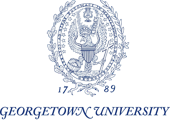Henry S. Richardson earned graduate degrees in law and in public policy at Harvard before getting his Ph.D. there (under John Rawls) in 1986. Dr. Richardson’s work centers on practical reasoning in all of its many guises: in the reasoning of individuals about their aims, in the democratic reasoning of citizens about public policy, and in our moral reasoning. Dr. Richardson’s initial work concerned the nature of individual reasoning. His book, Practical Reasoning About Final Ends (Cambridge University Press, 1994), shows how it is possible for individuals to deliberate rationally about ends, even final or ultimate ends, establishing new ones through a process of reasoning.
Dr. Richardson’s second book, Democratic Autonomy: Public Reasoning about the Ends of Policy (Oxford University Press, 2002), won both the Herbert A. Simon Best Book Award in Public Administration and the David Easton Award in the Foundations of Political Theory. It argues that democratic legitimacy requires that we rule one another by reasoning with each other, and developed an institutionally concrete account of how this can occur.
While Dr. Richardson continues to work on practical reasoning in general and on political theory, the bulk of his current work concerns moral reasoning. His overall aim is to work out how moral theory can best absorb the lessons of American pragmatism without giving up the constructive role of theory. He first set out these general thoughts, in a programmatic way, in "Beyond Good and Right: Toward a Constructive Ethical Pragmatism," Philosophy & Public Affairs 24 (1995): 108-141. This piece drew on "Specifying Norms as a Way to Resolve Concrete Ethical Problems," Philosophy & Public Affairs 19 (1990): 279-310; reprinted in The Philosopher’s Annual, Vol. XIII. The pragmatist’s emphasis on the intelligent response to obstacles suggests the need sometimes to re-specify moral norms; but who is authorized to do so? “Institutionally Divided Moral Responsibility,” in Social Philosophy and Policy 16 (1999): 218-249, develops the general view that this authorization varies with one’s social role. Dr. Richardson is currently at work on a book, tentatively entitled Articulating the Moral Community, that develops and deepens these lines of thought.
In addition to this theoretical work, Dr. Richardson has worked on an important but neglected issue in medical research, the question of what obligations medical researchers have to provide care that their research subjects need, but that is not required to carry out their research studies soundly or safely. Dr. Richardson began this work on this topic of medical researchers' ancillary-care obligations while he was a Visiting Scholar at the Department of Clinical Bioethics at NIH in 2002-3 and has published on the topic in such journals as the British Medical Journal and the American Journal of Public Health. He published a short book on the topic with Oxford University Press in 2012.
In political theory apart from the nature of democratic deliberation, Dr. Richardson’s work has been mainly as an editor and expositor. He is a coeditor (with Gerald Mara and R. B. Douglass) of Liberalism and the Good (Routledge, 1990) and (with Paul J. Weithman) of The Philosophy of Rawls (5 Volumes, Garland Press, 1999).
Dr. Richardson has held research fellowships sponsored by Georgetown University, the Program in Ethics and the Professions at Harvard University, the Woodrow Wilson International Center for Scholars, the Alexander von Humboldt Foundation, the National Endowment for the Humanities, and the University Center for Human Values at Princeton University.
Dr. Richardson is the editor of Ethics: An International Journal of Social, Political, and Legal Philosophy. In 2010, he was appointed by the Director General of UNESCO to a four-year term as a member of the World Commission on the Ethics of Scientific Knowledge and Technology (COMEST). He is currently one of the two Coordinating Lead Authors for the framing normative chapter of the report of the International Panel on Social Research.
Experience
-
–presentProfessor of Philosophy, Senior Researcher Scholar, Kennedy Institute of Ethics, Georgetown University
- Washington D.C, USA
- Website
- Article Feed
- Joined


